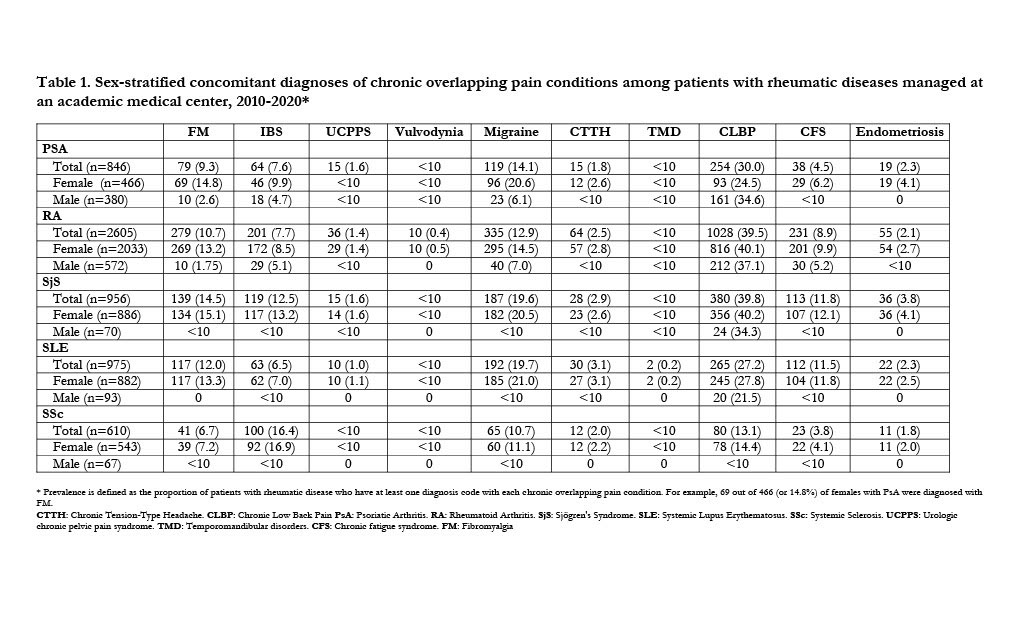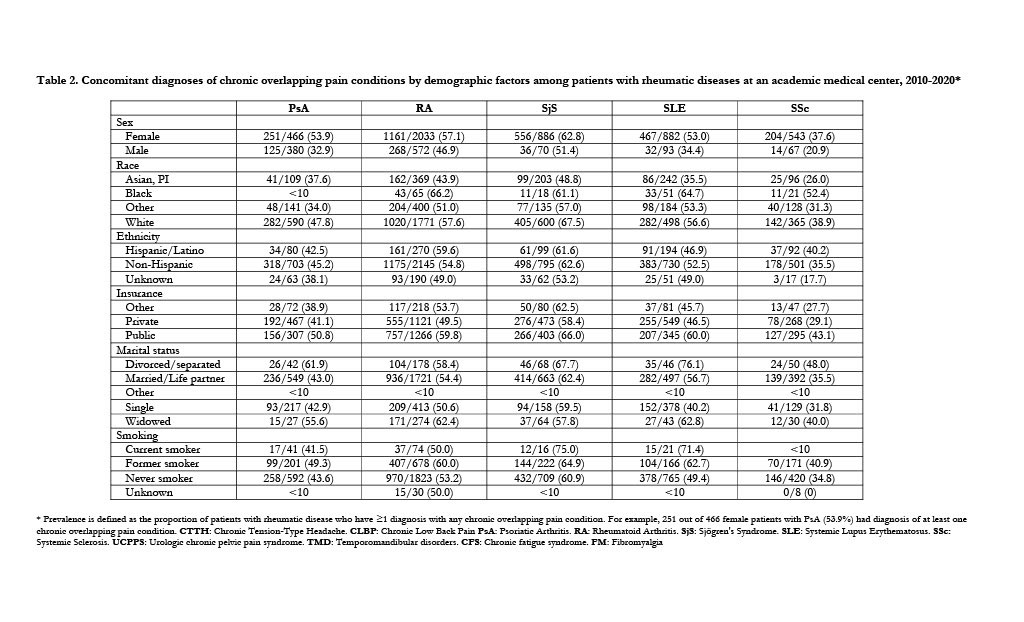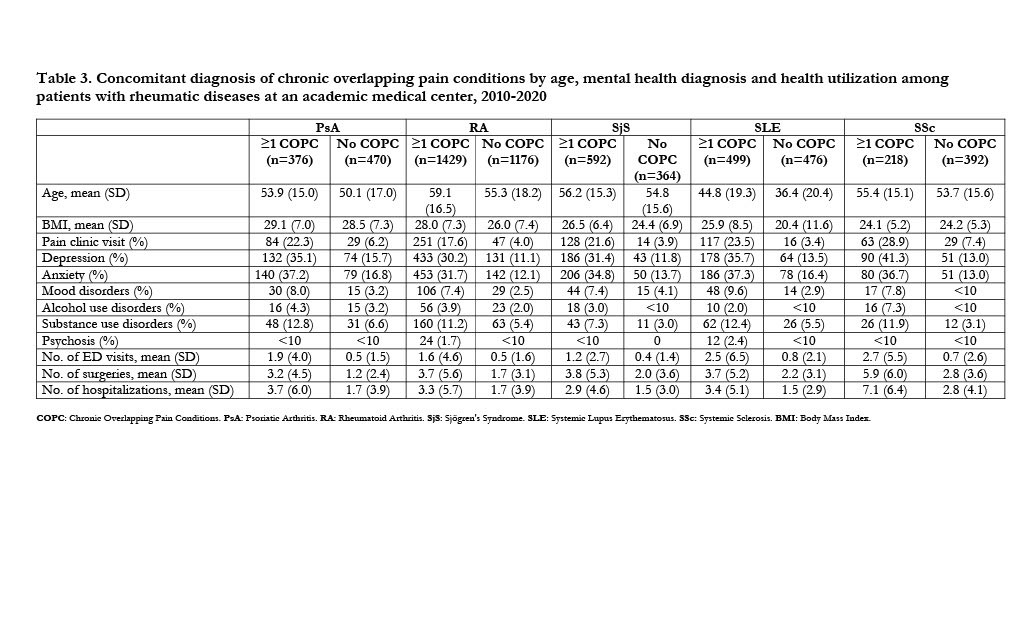Session Information
Session Type: Poster Session C
Session Time: 1:00PM-3:00PM
Background/Purpose: The chronification of pain is heterogeneous in rheumatology. Chronic overlapping pain conditions (COPCs) such as fibromyalgia, endometriosis, migraine, and back pain may co-occur with one another and in rheumatic diseases. We describe the sociodemographic and clinical profiles associated with concomitant COPCs among patients with rheumatic diseases.
Methods: We retrospectively identified patients visiting rheumatology clinics at a single institution from 2010 to 2020 for five common rheumatic conditions: psoriatic arthritis (PsA), rheumatoid arthritis (RA), Sjögren’s syndrome (SjS), systemic lupus erythematosus (SLE), and systemic sclerosis (SSc). We compared sociodemographic, clinical and lifestyle factors by rheumatic condition and by COPC status. We also report sex-stratified diagnosis of COPCs. The primary outcome was diagnostic validation of >1 COPC.
Results: We identified 5992 rheumatology patients: n=846 PsA, n=2605 RA, n=956 SjS, n=975 SLE, and n=610 SSc. >50% of patients had concomitant COPC diagnosis. Patients with SjS had the highest prevalence: 62%. Diagnosis of ≥1 COPC was highest among Black patients, and lowest among Asian patients. Patients using public insurance had a higher prevalence of ≥1 COPC compared to those with private insurance. Patients with ≥1 COPC had more depression and anxiety and more frequent ED visits, surgeries, and hospitalizations.
Conclusion: Our findings suggest that COPCs are strikingly common among patients with rheumatic disease and are associated with lower quality of life and greater healthcare needs. Future research may elucidate drivers of chronic pain and how to best address the unique analgesic needs of this multimorbid population.
To cite this abstract in AMA style:
Falasinnu T, Chaichian Y, Simard J. The Problem of Pain in Rheumatology: Clinical Profiles Associated with Concomitant Diagnoses with Chronic Overlapping Pain Conditions [abstract]. Arthritis Rheumatol. 2022; 74 (suppl 9). https://acrabstracts.org/abstract/the-problem-of-pain-in-rheumatology-clinical-profiles-associated-with-concomitant-diagnoses-with-chronic-overlapping-pain-conditions/. Accessed .« Back to ACR Convergence 2022
ACR Meeting Abstracts - https://acrabstracts.org/abstract/the-problem-of-pain-in-rheumatology-clinical-profiles-associated-with-concomitant-diagnoses-with-chronic-overlapping-pain-conditions/



